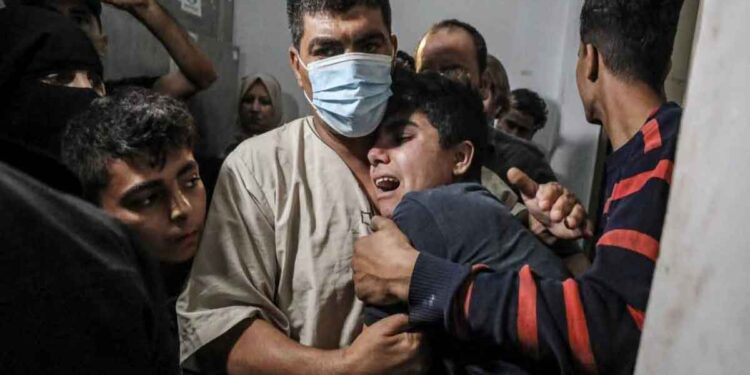The United Nations Children’s Fund (UNICEF) said that the Israeli occupation authorities killed 9 Palestinian children between May 7 and July 31, 2021, adding that it injured 556 children, and arrested at least 170 Palestinian children in the same period in occupied Jerusalem.
The UNICEF pointed out that during the recent war on the Gaza Strip, Israel targeted 116 private kindergartens and 140 public school buildings that were damaged, in addition to hitting 41 schools affiliated with the United Nations Relief and Works Agency for Palestine Refugees (UNRWA).
The organization stated that the limitations imposed on the Gaza Strip on supplies necessary for critical reconstruction, and basic livelihoods and services are still in place, adding that “As of the end of July, the Kerem Shalom crossing into the Gaza Strip has been open only to enter specific essential items and limited humanitarian commodities.”
It stressed that “Humanitarian access for supplies into the Gaza Strip remains a concern, with significantly decreased material availability in the local market. There is an urgent need to import some materials, especially for vital water, sanitation facilities and other reconstruction projects impacted considerably by the recent hostilities”.
The UNICEF added that “An additional challenge is the continued ban on the entry of “dual-use” materials into the Gaza Strip, which constrains the transfer of essential goods. This affects the operation and maintenance of vital water and sanitation facilities and infrastructure and the Gaza Strip’s only power plant. “
The organization warned that it will not be able to resume its operations to support the children of Palestine due to a severe deficit in its budget, pointing out that “during the recent Israeli aggression, the need to provide humanitarian assistance to meet the needs of children increased, reaching $47 million, with a gap of about $33 million, by 68%.
The organization confirmed that “Without sufficient funds, UNICEF will be unable to continue to respond to the urgent humanitarian needs, support the country’s nationwide response to ongoing crises and contribute to building the resilience of communities and strengthening the national systems.”, adding that “For example, 9,000 conflict-affected children will not benefit from emergency cash transfers, 33,000 children will not receive mental health and psychosocial support interventions. Furthermore, UNICEF and partners would not be able to continue providing life-saving, sustainable water, sanitation services for over 811,000 people, support a safe return to schools for over 307,000 children”.
The UNICEF also stressed that the “humanitarian situation deteriorated recently with the rise of tension in East Jerusalem, in addition to the escalation of hostilities in the Gaza Strip in May 2021, and the ongoing COVID-19 pandemic”, which all contributed to “deepening financial crisis.”






























